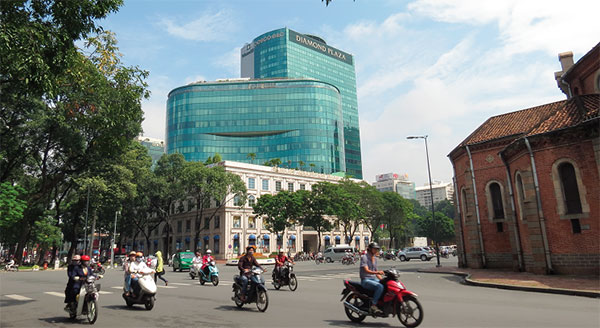Japanese companies have shown great interest in developing real estate in Vietnam, with a focus on Ho Chi Minh City and Hanoi.

About ten Japanese companies are rumoured to be pouring $2 billion into the Vietnamese real estate market.
According to Than Thanh Vu, chairman of Sao Khue Investment and Trade Promotion Corporation, the company has just taken a delegation of Vietnamese real estate companies to Japan to find cooperation opportunities. Many Japanese companies showed interest in luxury hotels, trade centres, office towers, and high-end apartments in Ho Chi Minh City and Hanoi. Most notably, Sumitomo plans to erect a $100-million office tower and Toshin to develop a so far unnamed, $200-million project.
According to Vu, many Japanese companies are choosing to tap into the real estate market of Ho Chi Minh City and Hanoi through the means of M&A. Their reasons include the drying up empty land supply and the complicated procedures making it difficult to make direct investments. He added that many Japanese investors have requested his company to advise them on buying luxury apartments and hotel projects in Vietnam.
Le Hoang Chau, president of the Ho Chi Minh City Real Estate Association, said that even though the Japanese companies have yet to sign an agreement, the possibility is a good sign. “The resources and management capacity of domestic real estate companies are now higher than before and now is a good time for them to call for foreign capital,” he said.
He also said that Vietnam and Japan have many similarities in culture and geography, and the two countries have become comprehensive strategic partners, making it an opportune time for Vietnamese companies and Japanese investors to rely on each other. Vietnamese companies need capital for big projects, because, according to current regulations, projects with higher-than-20 hectares must keep the owner’s equity at a minimum of 15 per cent and find professional management partners. Meanwhile, Japanese investors show a growing thirst to make foreign real estate investments.
By Ha Duy / vir